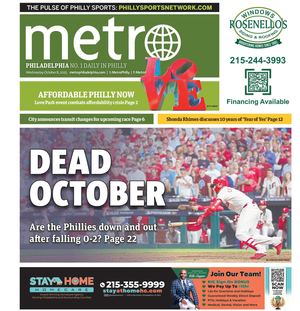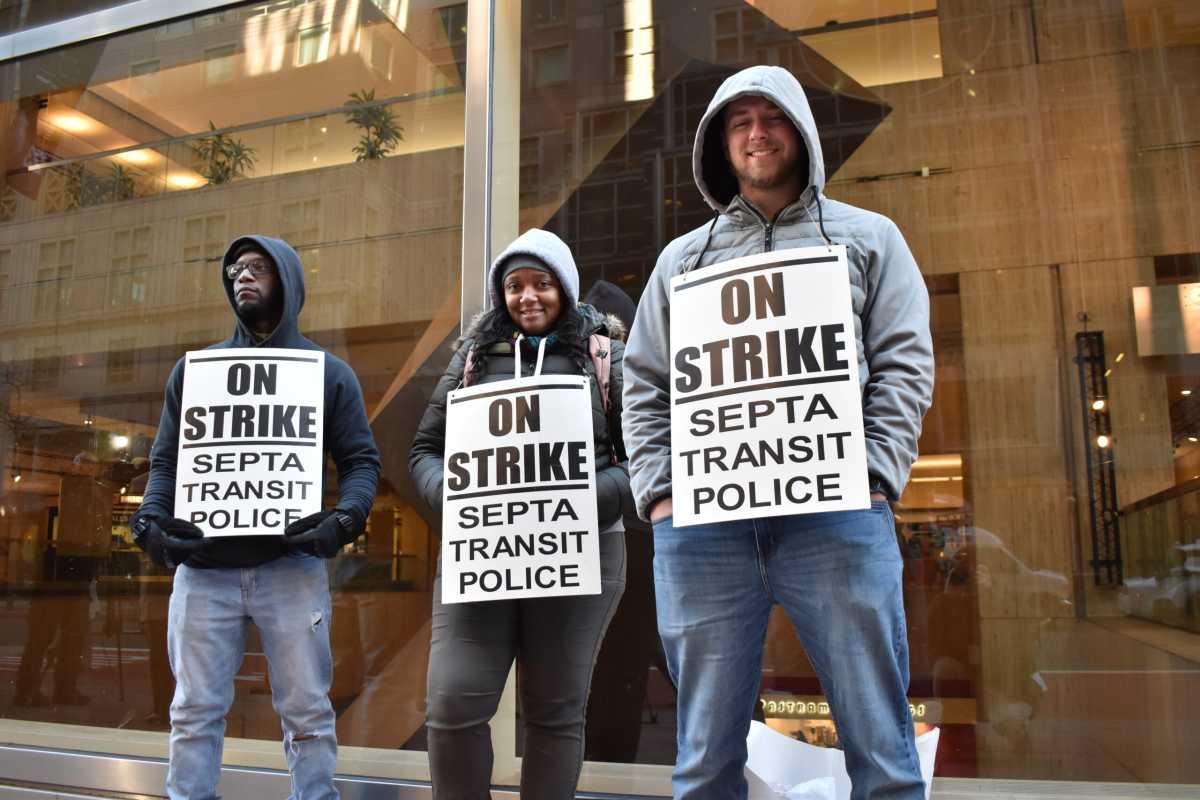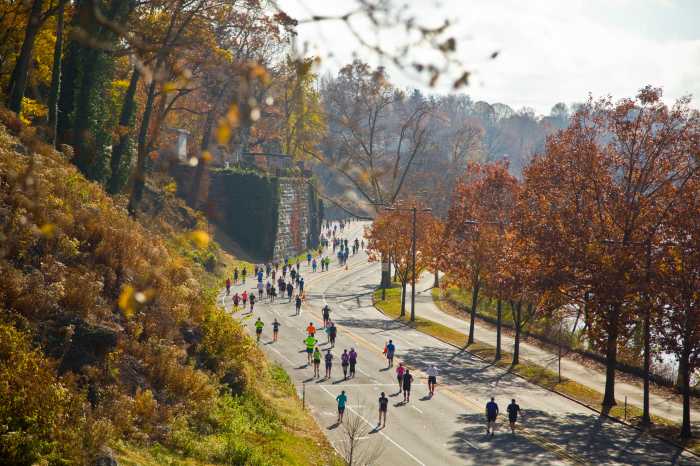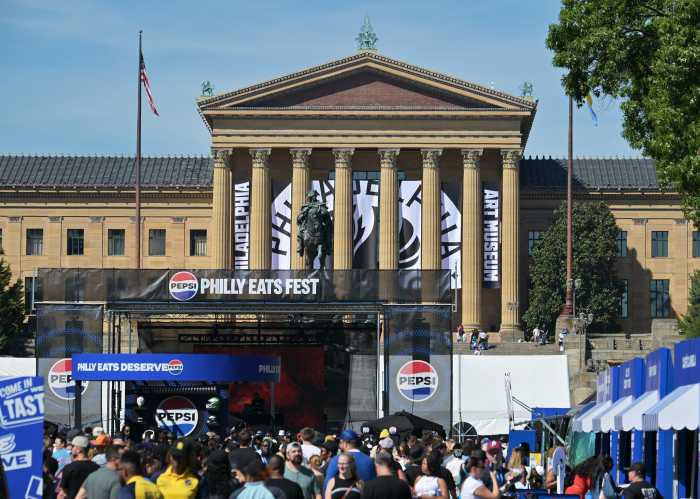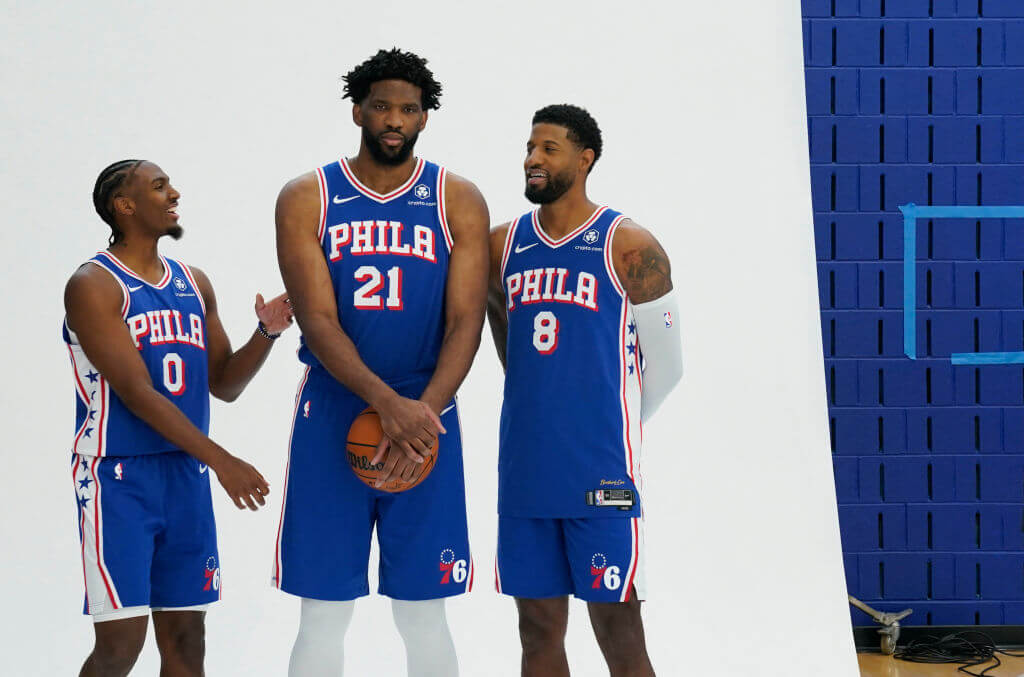Striking transit police officers picketed Thursday outside SEPTA’s Center City headquarters, a day after union members voted to reject the authority’s latest contract offer.
The walk-out is not disrupting bus, subway, Regional Rail and other public transit service, but it does mean that around 180 Fraternal Order of Transit Police Lodge 109 members will be picketing instead of patrolling SEPTA stations and stops.
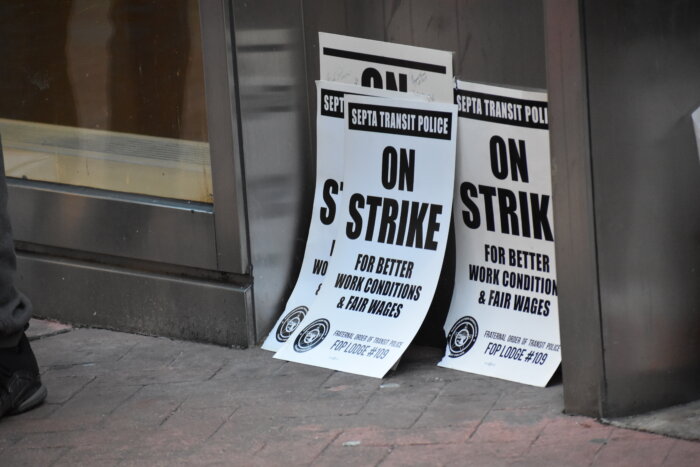
SEPTA, as part of a “strike contingency plan,” has reassigned nearly 50 police supervisors, who are not part of the union, to patrol duty, and the system is also getting help from the Philadelphia Police Department, college police and suburban law enforcement, officials said.
Riders can still contact transit police at 215-580-8111 and are encouraged to call 911 for an emergency.
“We’re confident that we can keep the system safe, but it’s at its best when we have our police officers,” SEPTA spokesperson Andrew Busch said.
Negotiators returned to the bargaining table Thursday afternoon; however, those talks ended abruptly, with tensions running high, Busch said.
“Historically, that very first meeting after a strike is called doesn’t go well,” FOTP Vice President Troy Parham, who has been through four prior work stoppages in his 24 years with the department, told Metro earlier Thursday. “Everybody’s angry.”
Both sides are set to meet again Friday morning, according to Busch.
The issue, from the union’s perspective, is the schedule of pay increases in SEPTA’s offer. Parham said FOTP wants the same 13% raise included SEPTA’s deal with Transport Workers Local 234 – the transit system’s largest union – over the same time period.
“We’re not asking for more,” Parham said. “Normally, we’d be asking, ‘Oh, we’re cops. We’re special. We should get more than the whole world. We’re only asking for what you gave them.”
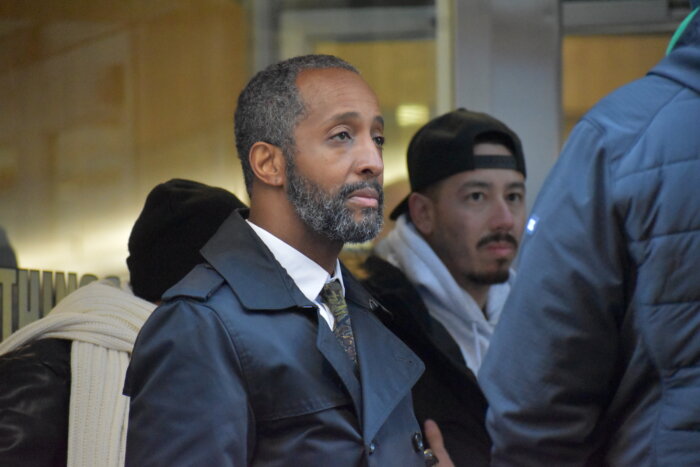
SEPTA officials have said the police’s collective bargaining agreement is structured differently, with officers receiving their most recent raise in March, when the FOTP contract expired. The authority’s administration believes their current three-year proposal is in line with TWU’s deal.
The transit system engages in pattern bargaining, with the TWU contract being used as a model for SEPTA’s other unions.
“It’s difficult to completely redo the economics of it for one bargaining unit,” Busch said.
Labor agreements for the city’s police and fire departments – and many other local law enforcement agencies around the country – are settled through binding arbitration, to prevent a strike. But SEPTA is not required to use that process for transit officers.
“We’re not looking for too much,” said Raj Hogan, who joined the SEPTA force after graduating from the Police Academy in June, as he stood on the picket line.
“We’re not going to get exactly what Philly has. We’re not going to get exactly what, I would say, Amtrak has,” he continued. “And that’s fine. But just giving us a fair deal, so that we can be competitive with other transit agencies around the country, that’s all we’re looking for.”
Transit police played a major role in apprehending the suspect in the fatal stabbing last week at the Center City Macy’s, and they also quickly apprehended a man who allegedly stabbed another man earlier this week at 69th Street Transportation Center.
“I don’t even feel safe (and) I’m a cop,” another first-year transit officer, Tom Beck, told Metro. “It’s crazy how dangerous it actually is.”
After ascending the steps Thursday at SEPTA’s 15th Street Station, rider Rich Bohn said he normally feels safe on public transit, though he was unaware of the strike. “Now that I know, it feels a little weird,” he said.
Jake Kirschner, who is pursuing a master’s degree in city planning, takes the Market-Frankford Line once or twice a week to the University of Pennsylvania.
“I know a lot of people in my bubble do not (feel safe) and they don’t ride the El as a result,” Kirschner said.
